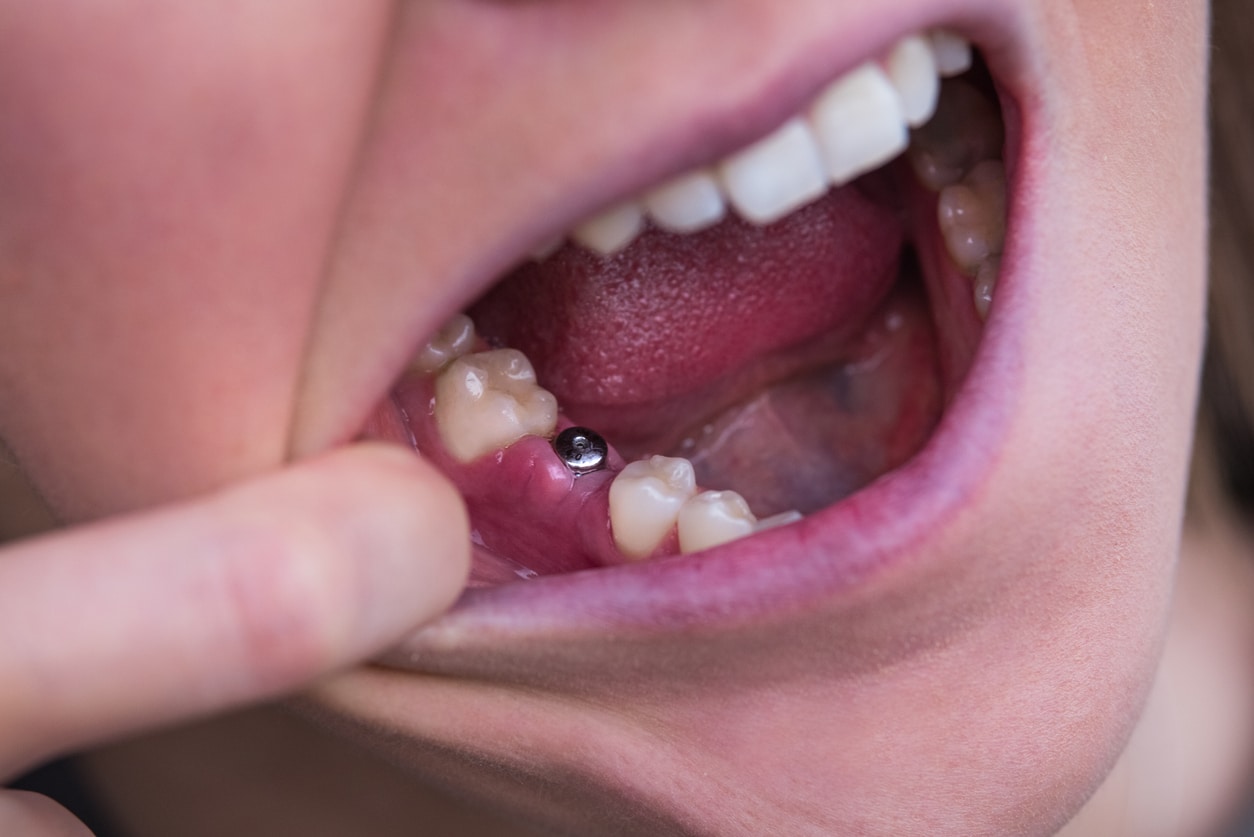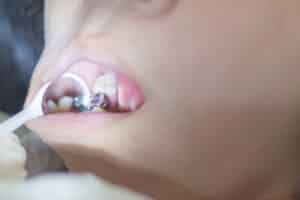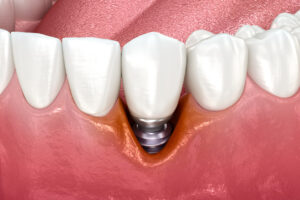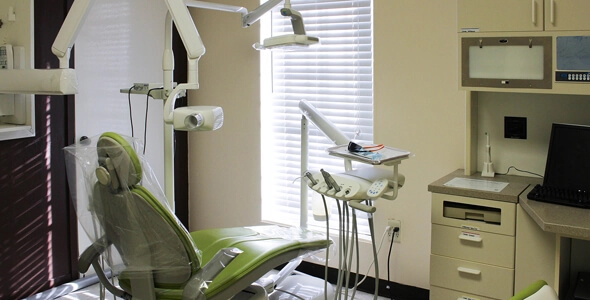According to the American Dental Association, dental implants are the “gold standard” of tooth replacement options. This is because they look, feel, and function more like natural teeth than dentures or dental bridges.
The process of dental implant placement takes 6 months to a year or more, depending on how your body heals. This procedure has a 90% to 95% long-term success rate. Still, as with any surgery, there is a risk of implant failure.
Implant failure may occur within the first few months following the procedure or it may occur many years later.
Common signs of Dental Implant Failure
There are several common signs of dental implant failure, including:
Implant feels loose
Dental implants consist of three parts: implant screw, abutment, and crown. If any of these pieces are not properly affixed, the tooth may feel like it is moving/twisting.
Difficulty chewing
Dental implants are inserted into the jawbone, which creates a stable base for the artificial tooth. If the implant is not placed properly, it can cause difficulties with chewing or speaking.
Gum inflammation/recession
In some cases, inflammation and bleeding may occur along the gumline near the implant site. This can ultimately develop into gum disease and cause gum recession- which exposes the abutment and leads to a variety of additional issues.
Swelling
Some swelling is normal for up to 72 hours after the procedure. However, if the swelling persists, you could be developing peri-implantitis, which is a precursor to implant failure.
Pain/discomfort
Since this is a fairly invasive surgery, some pain/discomfort should be expected for up to a week. However, if it continues for more than 10 days, you should contact your dentist.
Causes of Dental Implant Failure
There are two types of dental implant failure: early and late. Early failures are typically due to issues with the procedure or with healing. Late failures are typically due to pressure placed on the replacement tooth or other health factors.
Early Failure Factors
Implant failure that occurs within 3 to 4 months following the procedure is considered early failure. Since this is an invasive oral surgery, you should expect some minor pain/discomfort and swelling. However, it should begin to resolve within a week after the procedure. If not, you should contact your dentist. Some of the most common signs of early implant failure include:
Infection
Infection may develop at any time during or after the surgery. Factors that increase risk of infection include autoimmune disease, bad oral hygiene habits, and smoking.
Implant micro-movements
In most cases, a crown is not attached to the implant until after osseointegration has occurred. However, some clinics offer same-day/immediate tooth replacement. This increases the risk of implant micro-movements, which occur due to too much pressure being put on the implant.
Inadequate jawbone support
In order to ensure success, dental implants require adequate jawbone density. However, some dentists will perform the procedure anyway. This increases the risk of implant failure because the jawbone can’t properly heal around and fuse with the implant.
Allergic reaction
Some people are allergic to titanium alloy, which can trigger implant failure. Common signs of an allergic reaction include tingling sensation, swelling, and loss of taste. If you know that you are allergic to titanium, mention it during your consultation. Your dentist may use zirconia instead.
Failure to follow aftercare instructions
Your dentist/surgeon will provide you with specific aftercare instructions to reduce your risk of complications. Some of these instructions include avoiding hard candy, sticking to a soft food diet until the implant heals, and practicing proper oral hygiene habits.
Late Failure Factors
In some cases, complications develop many years later. Some of these include:
Nerve/tissue damage
This happens when the implant is placed too close to the nerve. Some of the indications of nerve damage include numbness/tingling of the face, lips, tongue, or gums
Foreign body rejection
While uncommon, in some cases, the body will reject the implant. Some of the most common signs of rejection include fever, chills, and swelling at the implant site.
Sinus damage
This happens when an upper implant protrudes into the sinus cavity.
Trauma near the implant
Trauma near the implant could cause it to loosen, which can lead to implant failure.
Tips for Reducing Risk of Dental Implant Failure
Unfortunately, it’s not always possible to prevent dental implant failure. However, there are steps you can take to reduce your risk:
- Have a bone graft if your jawbone density cannot support a dental implant
- Practice proper oral hygiene habits (brushing at least twice daily flossing at least once)
- Visiting the dentist every 6 months for an exam and cleaning
- Keeping all follow-up visits to ensure that healing is progressing as expected
- Stop/reduce smoking and tobacco use
- Stick to a healthy diet that supports your oral and overall health
Signs Your Dental Implants Are Healing Well
Some of the signs that your implants are healing properly include:
No pain
Once implants are fully healed, you should not notice a difference between them and your natural teeth. You should be able to eat and speak without pain/discomfort.
Healthy gums
As long as your gums are pink and free from inflammation/redness, you can be sure that your implants are healing properly.
Normal bite
When the implants are fully healed, your bite should be perfectly aligned.
Natural appearance
Properly healed implants look natural, most people won’t notice the difference between your natural teeth and your artificial teeth.

















